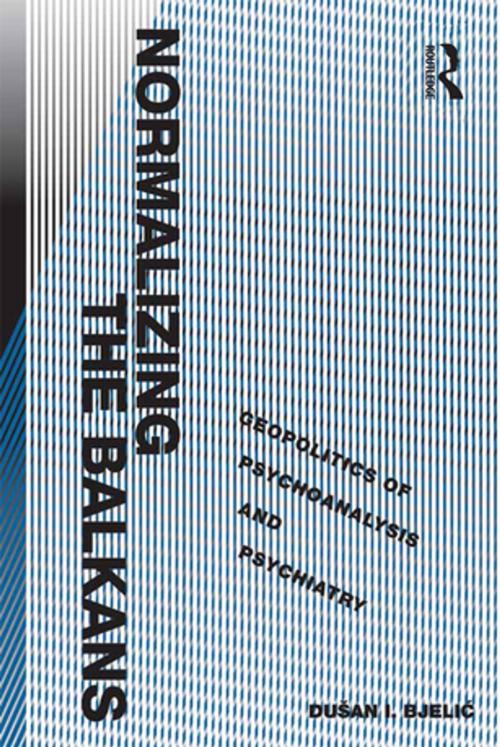Normalizing the Balkans
Geopolitics of Psychoanalysis and Psychiatry
Nonfiction, Social & Cultural Studies, Social Science, Cultural Studies, Ethnic Studies| Author: | Dušan I. Bjelic | ISBN: | 9781317086703 |
| Publisher: | Taylor and Francis | Publication: | May 23, 2016 |
| Imprint: | Routledge | Language: | English |
| Author: | Dušan I. Bjelic |
| ISBN: | 9781317086703 |
| Publisher: | Taylor and Francis |
| Publication: | May 23, 2016 |
| Imprint: | Routledge |
| Language: | English |
Normalizing the Balkans argues that, following the historical patterns of colonial psychoanalysis and psychiatry in British India and French Africa as well as Nazi psychoanalysis and psychiatry, the psychoanalysis and psychiatry of the Balkans during the 1990s deployed the language of psychic normality to represent the space of the Other as insane geography and to justify its military, or its symbolic, takeover. Freud's self-analysis, influenced by his journeys through the Balkans, was a harbinger of orientalism as articulated by Said. However, whereas Said intended Orientalism to be a critique of the historical construction of the Orient by, and in relation to, the West, for Freud it constituted a medical and psychic truth. Freud’s self-orientalization became the structural foundation of psychoanalytic language, which had tragic consequences in the Balkans when a demonic conjunction developed between the ingrained self-orientalizing structure of psychoanalysis and the Balkans' own propensity for self-orientalization. In the 1990s, in the ex-Yugoslav cultural space, psychoanalytic language was used by the Serb psychiatrist-politicians Drs. RaÅ¡kovic and Karadzic as conceptual justification for inter-ethnic violence. Kristeva's discourse on abject geography and Zizek's conceptualization of the Balkans as the Real have done violence to the region in an intellectual register on behalf of universal subjectivity. Following Gramsci’s and Said’s 'discourse-geography' Bjelic transmutes the psychoanalytic topos of the imaginary geography of the Balkans into the geopolitics inherent in psychoanalytic language itself, and takes to task the practices of normalization that underpin the Balkans’ politics of madness.
Normalizing the Balkans argues that, following the historical patterns of colonial psychoanalysis and psychiatry in British India and French Africa as well as Nazi psychoanalysis and psychiatry, the psychoanalysis and psychiatry of the Balkans during the 1990s deployed the language of psychic normality to represent the space of the Other as insane geography and to justify its military, or its symbolic, takeover. Freud's self-analysis, influenced by his journeys through the Balkans, was a harbinger of orientalism as articulated by Said. However, whereas Said intended Orientalism to be a critique of the historical construction of the Orient by, and in relation to, the West, for Freud it constituted a medical and psychic truth. Freud’s self-orientalization became the structural foundation of psychoanalytic language, which had tragic consequences in the Balkans when a demonic conjunction developed between the ingrained self-orientalizing structure of psychoanalysis and the Balkans' own propensity for self-orientalization. In the 1990s, in the ex-Yugoslav cultural space, psychoanalytic language was used by the Serb psychiatrist-politicians Drs. RaÅ¡kovic and Karadzic as conceptual justification for inter-ethnic violence. Kristeva's discourse on abject geography and Zizek's conceptualization of the Balkans as the Real have done violence to the region in an intellectual register on behalf of universal subjectivity. Following Gramsci’s and Said’s 'discourse-geography' Bjelic transmutes the psychoanalytic topos of the imaginary geography of the Balkans into the geopolitics inherent in psychoanalytic language itself, and takes to task the practices of normalization that underpin the Balkans’ politics of madness.















